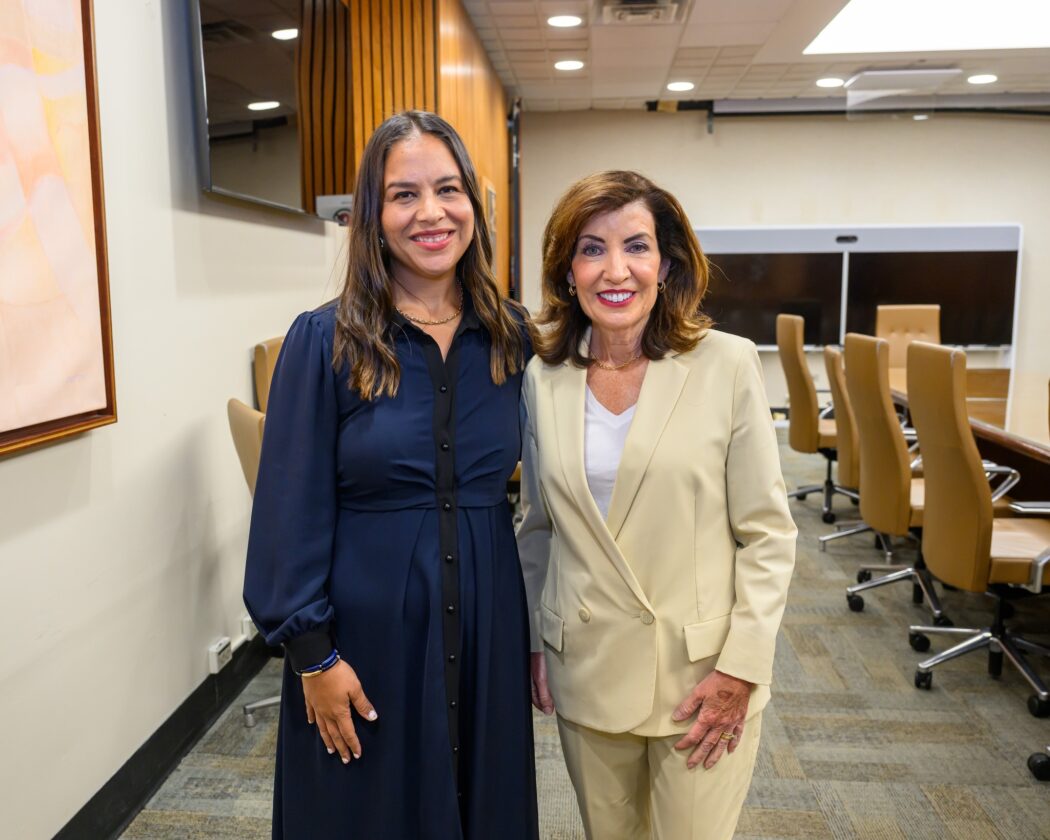Lawmaker Proposes Baby Food Testing

Assemblywoman Emerita Torres, D-Bronx, and Gov. Kathy Hochul are pictured after an August meeting.
A state lawmaker wants the state to test baby food at least once a month for toxic heavy metals.
Assemblywoman Emerita Torres, D-Bronx, has introduced A.9026, legislation that would require regular testing of baby food, public disclosure of results and additional consumer protections. Torres’ bill comes after new federal limits on metals in baby food were established earlier this year as well as recalls in other states of baby food by Publix and Target.
“New York infants and children continue to face serious exposure to toxic metals, including in food,” Torres wrote in her legislative justification. “The recent cinnamon applesauce contamination, which led to more than 560 childhood lead poisoning cases nationwide, underscored how quickly toxic metals in food can poison infants.”
Four states have now passed laws to force the baby food industry to test their products and inform families about the levels of heavy metals like lead and arsenic. Illinois is the latest state to pass the legislation this summer, following Maryland and Virginia
Torres wants to prohibit the sale of baby food in New York containing levels of toxic heavy metals above limits set by the state Department of Agriculture and Markets in collaboration with the state Health Department rather than new federal limits announced earlier this yearTorres would require manufacturers to test representative samples of each production aggregate at least once a month in an accredited laboratory and then require manufacturers to publish testing results on a publicly accessible website with product identifiers and a link to FDA guidance. Product labels would also be required to include a QR code directing consumers to testing results and FDA guidance. Additionally, Torres proposes the state create a process for consumers to report suspected violations, with authority for the state to share reports with regulators.
The state Department of Agriculture and Markets, in consultation with the state Health Department, would be given authority to adopt rules for sampling, laboratory proficiency, disclosures, recordkeeping, and consumer reporting.
The U.S. Food and Drug Administration in January set maximum levels for lead in baby foods like jarred fruits and vegetables, yogurts and dry cereal, part of an effort to cut young kids’ exposure to the toxic metal that causes developmental and neurological problems. The agency issued final guidance that it estimated could reduce lead exposure from processed baby foods by about 20% to 30%. The limits are voluntary, not mandatory, for food manufacturers, but they allow the FDA to take enforcement action if foods exceed the levels.
Consumer advocates, who have long sought limits on lead in children’s foods, welcomed the guidance first proposed two years ago, but said it didn’t go far enough. It’s a criticism with which Torres agrees.
“Federal regulators have taken some steps to address heavy metals in foods, but not nearly enough, and many such steps have been issued as guidance, not as enforceable measures linked to accountability and consumer protection,” Torres wrote in her legislative justification.





